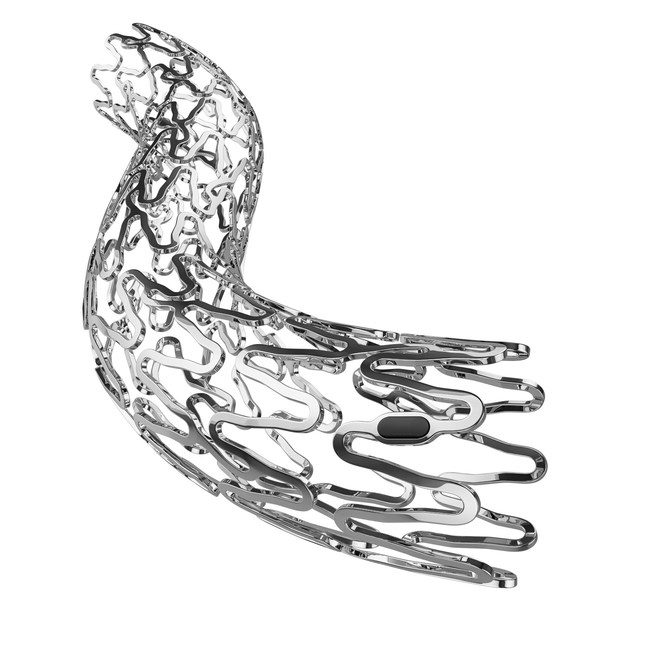UNITY-B Percutaneous Balloon Expandable Biodegradable Biliary Stent has received CE mark approval according to QualiMed Innovative Medizinprodukte GmbH, a wholly-owned subsidiary of Dublin, Ireland based Q3 Medical Devices Limited (Q3).
UNITY-B Percutaneous Balloon Expandable Biodegradable Biliary Stent (BEBS) was developed for the percutaneous treatment of hepatobiliary obstruction requiring large opening drainage with the added benefit of eliminating removal procedures associated with traditional non-degradable implants. Before the recent introduction of biodegradable biliary and pancreatic drainage devices, biliary and pancreatic duct implants were made of non-degrading plastics or metals. These traditional plastic and metal implants typically require multiple procedures to place the stents, treat associated complications, and remove the implants as their removal is mandatory in most cases. The removal requirement associated with the traditional implants has the effect of doubling the total cost of care by requiring two (2) operations (1 for the device implant & 1 for the device removal) versus one (1) operation (1 for the device implant) for the biodegradable devices. Biodegradable devices have the added benefit of dissolving in the body after they have completed their work.
The UNITY-B biodegradable stent is a large diameter balloon-expandable biodegradable implant that is introduced percutaneously and is intended to facilitate the drainage of obstructed ducts requiring larger openings. The UNITY-B biodegradable stent is designed to replace the estimated 1 Billion Euro plus the global market for non-degradable metal biliary implants. The UNITY-B biodegradable percutaneous stent was developed as an alternative to avoid the second removal procedures required with the traditional covered and uncovered metallic stents. The QualiMed percutaneous biodegradable balloon-expandable implant provides an advanced treatment option to the traditional plastic and metallic implants used by Gastroenterologists, Surgeons, and Interventional Radiologists to reduce the total cost of care and complications associated with the older generation of non-biodegradable plastic and metallic implants.
The UNITY-B Biodegradable Stent is designed based on the functionality of Musculoskeletal System (Bone and Muscle) where the biodegradable magnesium alloy mimics the bone and the polymer acts more like the muscle. The Skeletal (Magnesium) portion of the system serves as the main support structure. The Muscle (Polymer) helps to support movement and stability eliminating the shortcomings found in 1st generation biodegradable technology.
In a recent safety and efficacy clinical study conducted, the UNITY-B biodegradable system showed no (0) Adverse Events and no (0) Serious Adverse Events reported as related or even possibly related to the UNITY-B study device. “The final clinical success evaluation resulted to a success rate of 94.4% which is outstanding in comparison to the ESGE 2012 guideline for traditional products, which just for stent dysfunction already reports 41%, 27% and 20% failure rate for plastic stents, uncovered SEMS (self-expandable metallic stents) and covered SEMS, respectively.
Doctor Pérez-Cuadrado-Robles, an interventionalist stated, “The UNITY-B Biodegradable Stent will become a new paradigm in the management of pancreatobiliary diseases. Patients with a variety of indications, such as benign biliary strictures, biliary stones, prevention of post-sphincterotomy bleeding, biliary leaks etc. can be candidates to this technology. Indeed, this intuitive and outstanding stent can prevent second-look procedures and their procedure-related complications, resulting in a cost-effective and safe approach. Notably, the UNITY-B has major advantages in patients with a difficult access to the biliary duct (i.e., surgical anatomy). For all these reasons, this new technology should be an integral part in the management of pancreatobiliary diseases armamentarium.”
“The CE mark approval of the UNITY-B Percutaneous Biodegradable implant represents yet another milestone for QualiMed and all the companies of Q3 Medical and our collective mission of Creating Value By Helping People. In these uncertain times, being able to provide total cost of care cost-saving using advanced, clinically proven products is more important than ever,” said Eric K. Mangiardi, CEO of Q3. “As we continue the development of additional biodegradable technologies to expand our portfolio for use in the gastrointestinal tract and peripheral vasculature, we are striving to shift the paradigm for treatments by reducing complications and eliminating the need for additional removal procedures or latent complications associated with the current treatment options.
“This device opens a new era in biodegradable advancements that are easy to use and similar to the current technology so no additional training is needed. The technology also has the additional benefit of potentially eliminating the second procedure required for stent removal with the traditional technology and eliminating the cost of care for the patients and the insurance providers. With its reliable degradation profile, ease of use, and cost-saving benefits the device will surely see the utility in other applications throughout the gastrointestinal and peripheral vasculature,” said Professor of Radiology Gianpaolo Carrafiello, from the University of Milano, Milano, Italy.
It is an exciting time for the company stated Eric Mangiardi, CEO of Q3 Medical as “this is only the beginning of the creative journey developing biodegradable implants for use by interventionalists and surgeons in the gastrointestinal tract as a 1st step and in the vasculature as a 2nd step. The company plans to continue its development for a variety of vascular indications including the commercialization of a specialty biodegradable implants for vascular dissections and occlusions including biodegradable covered versions of the UNITY Platform. To date Q3 Medical through its portfolio companies like QualiMed, AMG, Qsan, and QualiMed USA has 5 unique differentiated biodegradable products CE approved for treatment of a wide range of gastrointestinal indications in the hepatobiliary tract. The companies are focused on additional developments to expand the biodegradable product offering in the gastrointestinal and peripheral vascular areas.



